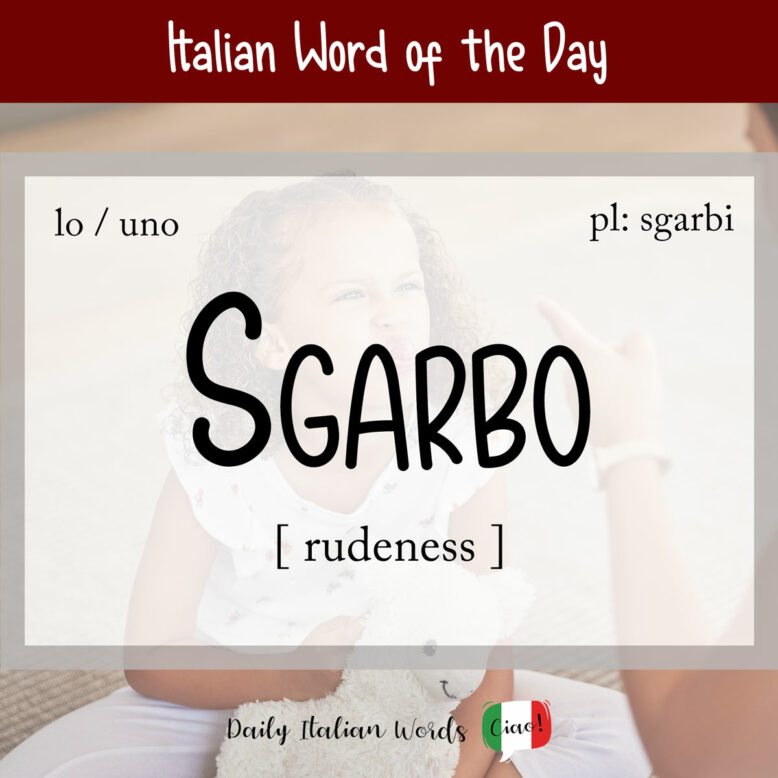The Italian word sgarbo sounds just as unpleasant as the meaning it suggests. It can be translated in many ways, including rudeness, discourtesy, impoliteness, and slight depending on the context.

Sgarbo is a masculine noun whose plural form is sgarbi. Because it starts with the consonant cluster sg-, the definite and indefinite articles it takes are as follows:
lo sgarbo
the discourtesy
uno sgarbo
a discourtesy
gli sgarbi
the discourtesies
degli sgarbi
(some) discourtesies
Two verbs you will often see in the company of sgarbo are ricevere (to receive) and fare (to do / make).
- ricevere uno sgarbo da qualcuno = to be treated rudely by someone, to be slighted by someone (lit. to receive a rudeness from someone)
- fare uno sgarbo a qualcuno = to treat someone rudely, to slight someone (lit. to do a rudeness to someone)
Mi ha fatto uno sgarbo che non potrò mai perdonare.
He was so rude to me. I won’t be able to forgive him.
(lit. He did me a rudeness that I won’t be able to forgive.)

You can also say trattare qualcuno con sgarbo (to treat someone rudely).
Somewhat rarer is the plural sgarbi which refers to multiple acts of rudeness or poor manners rather than one specific incident.
Non sopporto gli sgarbi a casa mia!
I won’t stand for rudeness in my house!
Take away the initial ‘s‘ and you get the opposite of sgarbo, the noun garbo which means, as you might have guessed, courtesy, politeness or good manners.
Then, we have the adjective / noun sgarbato (feminine: sgarbata) which defines a person who is rude and unkind.
Finally, there is the term sgarbataggine which indicates a recurrent behaviour that is rude and unpleasant.

Heather Broster is a graduate with honours in linguistics from the University of Western Ontario. She is an aspiring polyglot, proficient in English and Italian, as well as Japanese, Welsh, and French to varying degrees of fluency. Originally from Toronto, Heather has resided in various countries, notably Italy for a period of six years. Her primary focus lies in the fields of language acquisition, education, and bilingual instruction.


